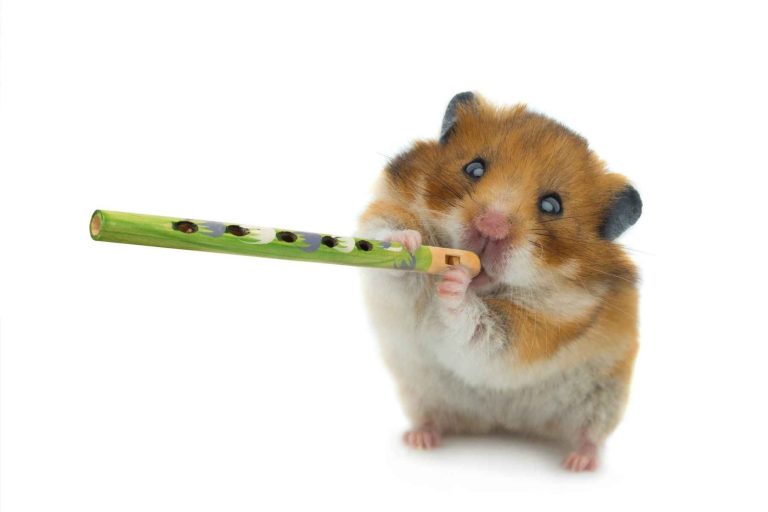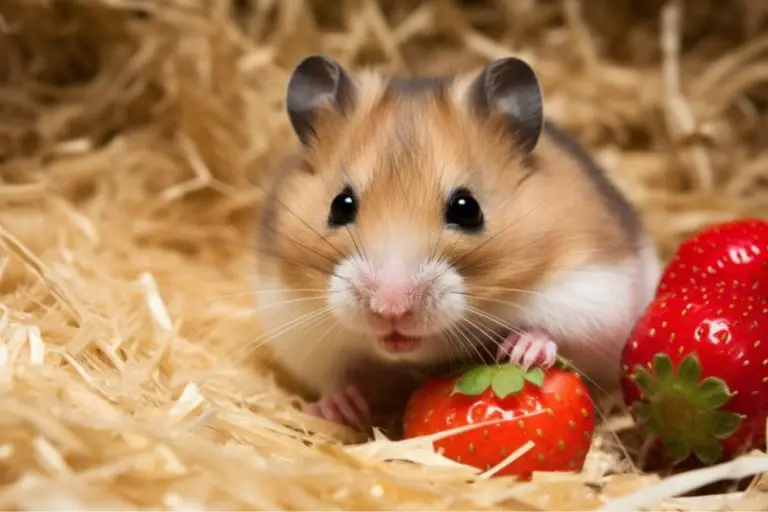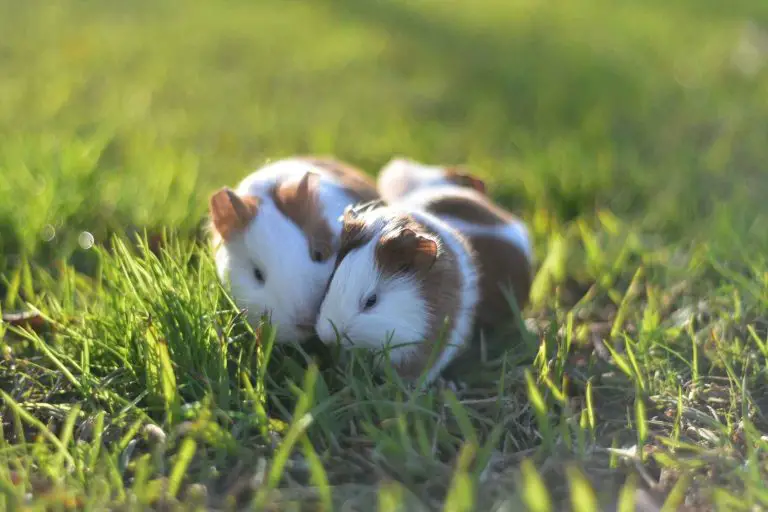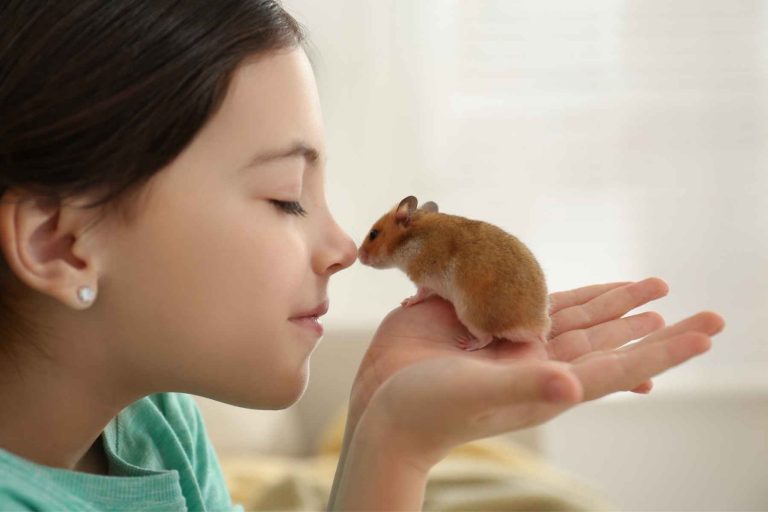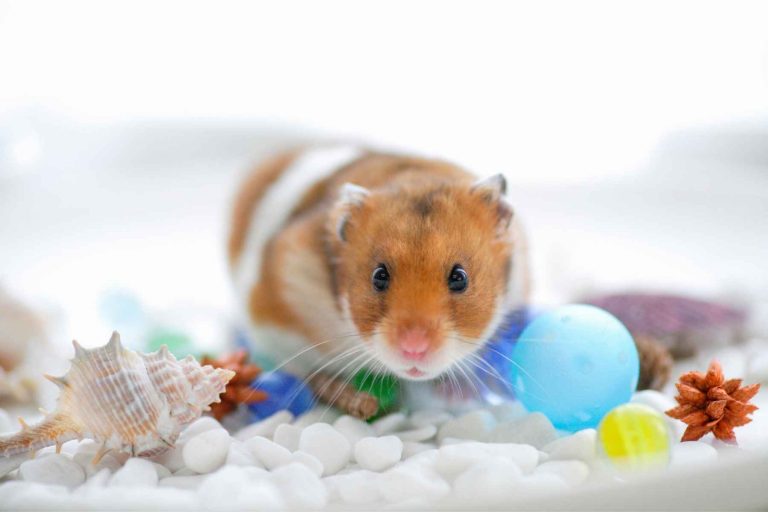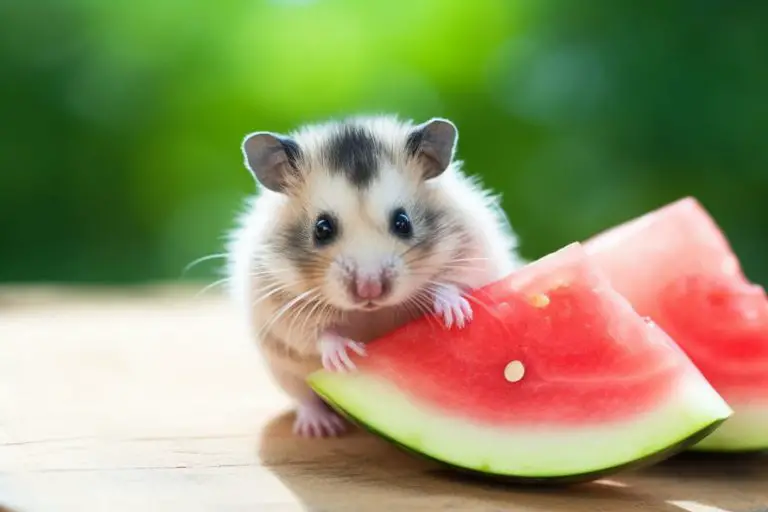What Do Hamsters Eat?
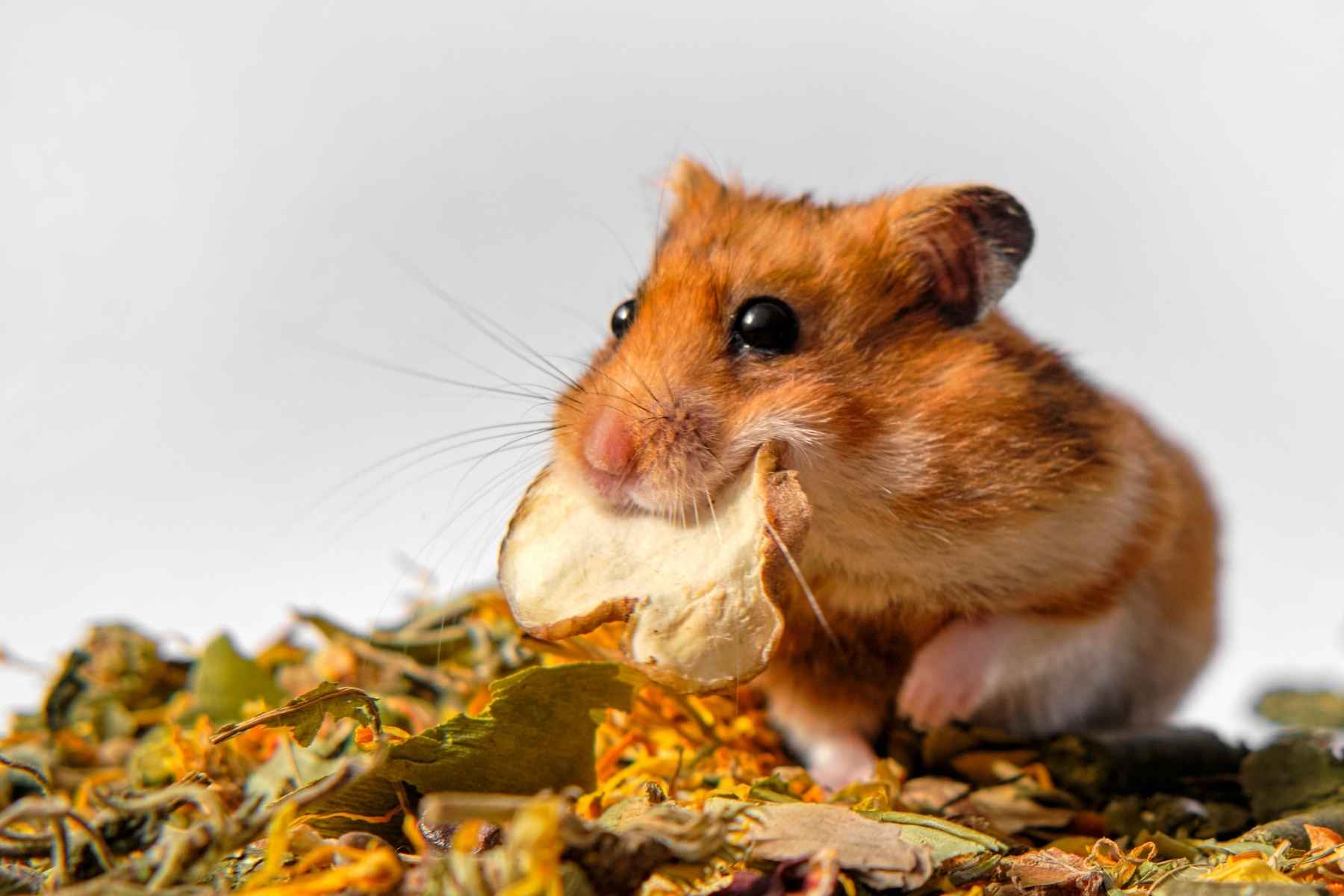
If you plan to get a hamster as a pet, you may be curious about what they eat. After all, you’ll want to stock up on the proper kind of food for your hamster before you get one. So, what do hamsters eat?
There isn’t just one type of food that they are limited to, much like the rest of the animal kingdom.
A wild hamster would have a diet adapted to their surroundings, making them omnivores that would consume seeds, grain, grasses, and even insects. A pet hamster could also eat these things but would also be fine eating the type of mix you would get from a pet store, such as pellets.
The truth is that hamsters can eat a huge array of things since they are omnivores. From mealworms to apples, there are few limitations on what hamsters eat. However, this means what you should feed your hamster can be difficult because there are so many options.
In this article, we’ll discuss what a balanced diet for a pet hamster looks like and how much food you should give them in general.
A General Diet Plan
For the most part, a pet hamster should sustain itself mostly through your typical commercial pellet food used for rodents like rats and rodents.
This may sound odd when you could feed your hamster actual fruits, vegetables, or insects, but there’s a good reason to stick to commercial food for the diet.
The thing is, commercially made pet food is carefully balanced to provide the proper nutrients and vitamins to a pet, so you don’t have to worry about whether or not your hamster is getting everything it needs daily. If you are feeding them different foods yourself, it’s hard to judge if they are getting what they need accurately.
This is not to say that you could not include extra treats such as fruits and mealworms to your hamster every once in a while, but it would not be recommended to try and fill your hamster’s diet with these things alone. A hamster’s diet, generally speaking, should be about 15-25% protein, 35-40% carbs, 4-5% fat, and 5% crude fiber.
Since dietary needs change with breed and size, you should consult a veterinarian about the specific needs of your hamster or a hamster that you intend to get. It will usually be relevant to their recommended caloric intake and how much your hamster should eat every day.
Seed Diets
For many pet owners, there is an option to buy commercial seed diets for their hamsters. While this may sound like a good idea, this is not something that you should rely on as a sole means of providing food to your hamster. Being omnivores, they do not get everything they need from seeds alone.
In other words, a hamster will face several deficiencies in their nutrition if they eat only seeds. Your hamster will not be getting enough amino acids, minerals, or vitamins.
You can use seeds as a supplement to your hamster’s diet, but you cannot rely solely on them. Many people view hamsters as pure vegetarians, but they are not.
Overall Feeding Needs
Generally speaking, hamsters do not actually require that much food every day.
While this varies depending on their size, most hamsters only need 1/8 to 1/3 of a cup of commercial food pellets every day. That’s much less than many other people realize, so hamsters are often overfed.
We’ll discuss this more in detail later in the article, but you have to be careful with how much you feed hamsters, especially when giving them human food.
Many human foods have high amounts of sugar, fiber, or other aspects that will be detrimental to a hamster’s health if they overeat them.
It’s also worth noting that hamsters are nocturnal and are much more likely to eat at night than at any other time during the day. Do not be alarmed if your hamster is not eating during the day.
As for water concerns, a hamster needs roughly 10 milliliters of water per 100 grams of weight every day. Of course, you’ll want this to be fresh water, so be sure to change it out every day. The best way to provide water to your hamster is via a water bottle that has a stainless steel sipper tube.
Which Human Foods Can Hamsters Eat?
Because hamsters are omnivores, they can eat many human foods. But that doesn’t mean you should feed them anything you eat yourself.
There is still a limit to what hamsters can eat safely. Regardless of what you can feed your hamster, keep in mind that there is no human food they need.
Everyday food items that are safe for hamsters to eat include:
- Seeds
- Grains
- Greens
- Breakfast cereals that have no sugar
- Raisins
- Carrots
- Apples
- Peppers
- Peas
- Cucumbers
While many fruits and vegetables are mentioned in that list, it should be noted that you should not feed your hamster dried fruits or vegetables.
Dried fruits and vegetables tend to have higher sugar content, and this can cause obesity in hamsters who are not supposed to have much sugar in their diet.
Because there are so many special considerations for the various types of human food, we will cover some of the most popular choices in slightly more detail. Keep in mind that most, if not all, human food should be fed to hamsters in moderation.
Sugary Fruits and Vegetables
Sugary fruits and vegetables, like grapes, apples, carrots, and bananas, can be fed to your hamster, but these should be used as occasional treats.
The high sugar content of such fruits can lead to increased weight gain if your hamster is allowed to eat them too often. In the case of apples, do not feed your hamster the skin or seeds.
Greens Such as Celery and Lettuce
You must be careful when feeding greens to your hamster. Greens are usually high in fiber, and eating too much of it in a brief window of time can cause your hamster to have stomach issues such as diarrhea.
Like sugary fruits, these are things to feed a hamster in moderation, even though they strike humans as healthy with no drawbacks.
Citrus Fruits
It is a bad idea to feed a hamster citrus fruits, including oranges, lemons, and grapefruits. These fruits are highly acidic and likely cause stomach trouble for your hamster. These issues could include upset stomach, diarrhea, and other digestion issues.
It does not mean that you can never feed citrus fruits to your hamster, but if you do this, you must ensure that you only provide very tiny amounts.
Still, it’s generally a better idea to avoid giving your hamster citrus at all. If you never let them get a taste for it, you never have to feel bad about keeping it away from them.
Spiky or Sticky Foods
As you may know, hamsters tend to store food in their cheeks. Because of this, you need to be particularly wary of feeding your hamster foods that are especially sticky or spiky.
If the hamster tries to store such foods in its checks, it could cause them physical harm. Thus, you must avoid these at all costs.
Summary
Hamsters are omnivores, meaning they eat both plants and meat. They can eat seeds, grains, grass, and insects in the wild.
In the comfort of your own home, they are most suited to eating commercially produced hamster food, which often comes in the form of pellets. Such food is designed to meet all nutritional needs.
While commercial pellets should be the primary source of food for your hamster, there are many human foods that you can feed them relatively safely. It includes fruits like apples, grapes, and bananas and vegetables such as lettuce, broccoli, and celery. They can even be fed things like sugarless grains and raisins.
However, one needs to keep in mind that all human food should be fed to a hamster in moderation, and none of them are a required part of a balanced diet for a hamster.
It is best to look at human food as a treat that you can occasionally give your hamster rather than an integral part of their diet. Commercial food should be their main diet.

